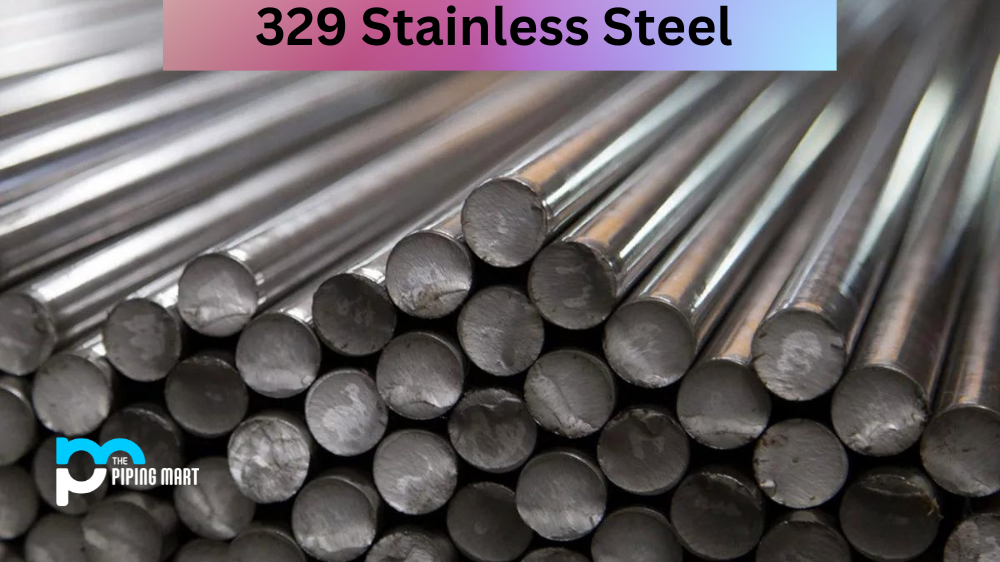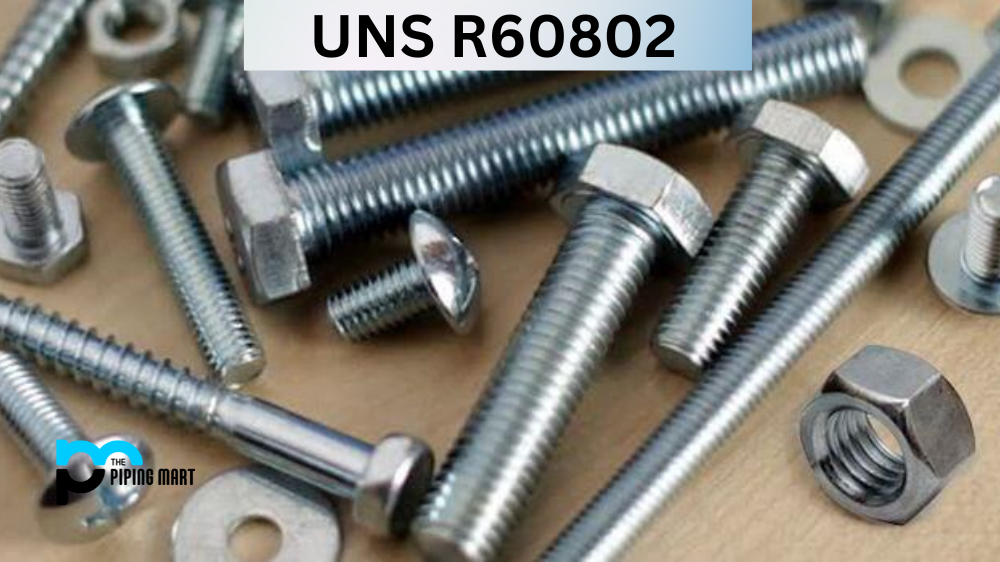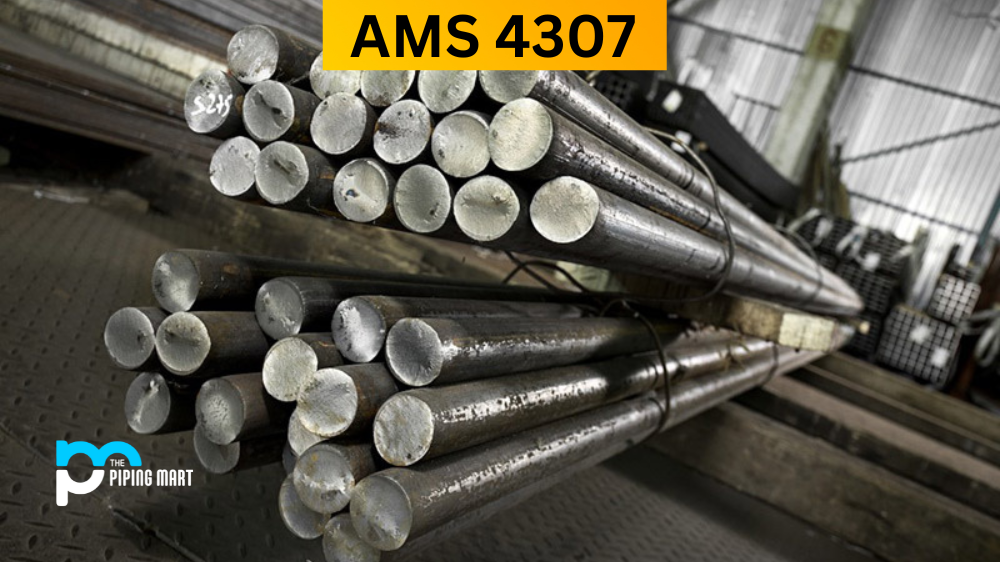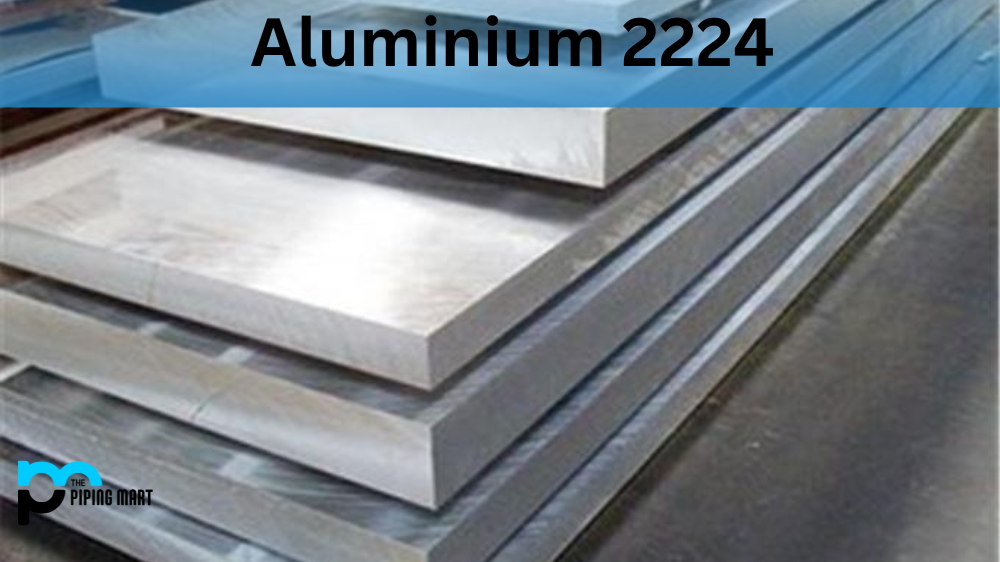If you are looking for a metal that is both corrosion-resistant and has high-performance properties, then look no further than 329 stainless steel. This material is ideal for applications that require excellent strength and durability, such as medical equipment, automotive components, and even food processing equipment. Let’s take a closer look at the composition, physical properties, mechanical properties, and uses of this popular grade of stainless steel.
329 Stainless Steel Composition
UNS S32900 is an austenitic stainless steel alloy with a combination of iron, chromium, nickel, molybdenum, and nitrogen. This combination makes it highly resistant to corrosive elements like salt water or chlorine in marine environments and other industrial chemicals. It also has great resistance to pitting and crevice corrosion owing to its high chromium content. Furthermore, it has a higher carbon content compared to other grades of stainless steel, which gives it greater strength when exposed to heat treatment processes.
| Element | Content (%) |
|---|---|
| Iron, Fe | 63 |
| Chromium, Cr | 28 |
| Nickel, Ni | 4.5 |
| Manganese, Mn | 2 |
| Molybdenum, Mo | 1.5 |
| Silicon, Si | 1 |
| Carbon, C | 0.10 |
| Phosphorous, P | 0.040 |
| Sulfur, S | 0.030 |
329 Stainless Steel Physical Properties
UNS S32900 is a very strong alloy with excellent tensile strength (up to 900MPa) and yield strength (up to 750MPa), depending on the application conditions. It also has great ductility and formability with good weldability thanks to its low carbon content. Additionally, this grade of stainless steel has very good thermal conductivity as well as superior heat resistance up to 870°C/ 1600°F.
| Properties | Metric | Imperial |
|---|---|---|
| Density | 7.80 g/cm3 | 0.282 lb/in³ |
329 Stainless Steel Mechanical Properties
The mechanical properties of 329 stainless steel mainly depend on the heat treatment process used during manufacturing. After heat treatment processes like annealing or quenching, this grade can achieve improved hardness levels up to 30 HRC while still maintaining its excellent strength and ductility characteristics. This makes it particularly useful for applications where hard-wearing parts are required but must still be able to withstand heavy loads without breaking or cracking under pressure.
| Properties | Metric | Imperial |
|---|---|---|
| Tensile strength, ultimate | 725 MPa | 105000 psi |
| Tensile strength, yield (@0.2%) | 550 MPa | 79800 psi |
| Charpy impact | 54 J | 39.8 ft-lb |
| Elastic modulus | 190 – 210 GPa | 27557 – 30458 ksi |
| Poisson’s ratio | 0.27 – 0.30 | 0.27 – 0.30 |
| Elongation at break (in 50 mm) | 25% | 25% |
| Hardness, Brinell | 230 | 230 |
| Hardness, Knoop (converted from Brinell hardness) | 253 | 253 |
| Hardness, Rockwell B | 96 | 96 |
| Hardness, Rockwell C (converted from Brinell hardness) | 20 | 20 |
| Hardness, Vickers (converted from Brinell hardness) | 242 | 242 |
329 Stainless Steel Equivalent
- ASTM A240
- ASTM A268
- ASTM A789
- ASTM A790
- ASTM A511
- ASME SA268
- ASME SA268
- DIN 1.4460
329 Stainless Steel Uses
UNS S32900 is a primary metal alloy used in many applications across industries. Its ability to retain strength and resist corrosion makes it an ideal material for a variety of projects, from construction to food processing. In construction, its extraordinary tensile strength makes it a great choice for bolts and other structures that require stability when experiencing movement and vibration. Additionally, its excellent corrosion resistance has made it popular for chemical processing applications such as pipes, valves and pumps that have frequent contact with liquids or vapours. Lastly, 329 stainless steel is great for food processing as it can handle prolonged contact with liquids like acid-based foods or alcoholic beverages without suffering wear and tear or discolouration over time. Clearly, 329 stainless steel is one of the most useful metals available today due to its wide range of applications.
Conclusion
In conclusion, if you need a metal that offers superior corrosion resistance while also having great physical and mechanical properties, then consider using 329 stainless steel in your next project or application. Its high chromium content makes it highly resistant to corrosion, while its low carbon content gives it excellent strength when exposed to heat treatments such as annealing or quenching. Additionally, its superior hardness levels make it suitable for applications where hard-wearing parts are needed but must still be able to withstand heavy loads without breaking or cracking under pressure. All in all, this grade is perfect for projects requiring maximum performance from their materials.

Pipingmart is a B2B portal that specializes in metal, industrial and piping items. Additionally, we share the latest information and information about materials, products and various types of grades to assist businesses that are involved in this business.




